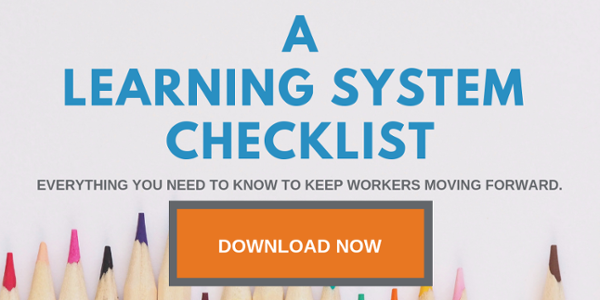The Department of Labor says we're in the ninth straight month of having more job openings than job seekers.
So...Are you surprised when employees take off for another opportunity?
You shouldn't be. With the lowest unemployment rate since 1969, the recruiting world is basically on fire trying to find talent. For high-demand workers like masons, bricklayers, nurses and a host of others, the competition is intense.
In a world where employees have the power, your organization has got to keep them happy. Here are some signs you might need to up the ante with your workers to keep them.
Their Opportunities Are Lacking at Your Company
Career opportunities are the No. 1 reason employees leave a company, according to a 2018 Retention Report by Work Institute. With the economy rolling and little fear of layoffs, workers are looking for ways to shore up their value. To help make employees feel they are advancing in their self-interests, consider:
- Talking with employees about their job contentedness (Are you happy with your day-to-day? Where would you like to be in a year, five years?)
- Provide opportunities for training and development.
- Supplement work-time with the chance to acquire new skills.
- Do some career planning.
- The takeaway: Don't let an uncertain future make employees start job searching for a place that will let them grow.
Employees who aren't destined for managerial roles should still have a rewarding career plan, so don't count them out. Do this by creating levels of expertise in current job titles and look at it as a way to encourage employees to continually improve themselves to earn pay increases and distinction.
Their Personal Lives Are Suffering
The employee-centric trend demands more and more flexibility. With lots of companies searching for talent, flexibility is one of the top draws for luring away the already-employed. Here are some ways to make a dent in this complaint:
- Schedule better. Sixty-seven percent of workers who left their jobs because of work-life balance reasons say their schedule was the No. 1 problem (Work Institute). Consider introducing more flexibility and more autonomy in scheduling or swapping shifts.
- Decrease their commute. No one wants to spend a lot of time chasing buses or idling on busy roadways; evaluate how often employees really need to come in.
- Give them the hours they want. Too many or too few hours? Make sure you and your employees are on the same page about what an ideal situation is for both of you.
- The takeaway: 51 percent of workers would leave their job for one that offered flextime, so if you want to keep your workers, offer it (Gallup).
Their Boss Is Bumming Them Out
The management dynamic in American workplaces is pretty bad. Fifty percent of employees have left their job to get away from a manager (Gallup). Obviously, hiring and promoting the right personnel will help fix this, but in the meantime, managers are less likely to be a problem if they:
- Make communication a priority. Consistent and open communication is often the key to any good relationship. And it's not just business matters: The same Gallup poll found employees who feel their manager is invested in them as people are more likely to be engaged.
- Talk about employee performance reviews more than annually
- Focus on workers' strengths and develop them.
- Be a kind person (sounds easy, right?)
- Be professional - organized, consistent, unbiased.
Their Paycheck and Benefits Aren't Up to Snuff
This is the one everyone thinks of, but according to Work Institute, it's No. 3 on the list of reasons employees ditch their jobs. With the current economic boom and competition for talent, throwing money at in-demand candidates is perhaps the easiest way to get their attention. It creates a bubble, sure, but it can work. Consider sitting down with high-risk employees - those with specialized skills who've shown they're hungry to achieve and move up - and talking money, more than annually. Check out this guide on why normalizing money talk will increase your retention.
You're Not Listening to Them When They Leave
Quality exit interviews are your best tool for reacting to employee losses and trying to close up the floodgates. Valuable exit interviews include:
- An explanation of the purpose of the exit interview (to help improve your workplace and company culture)
- A genuine commitment to listen without pretense
- Questions that can be measured and tracked
- An action plan for making needed improvements, if applicable
Retention challenges are a reality in our current economy. To do what you can to keep employees happy, smart HR software can go a long way. Give ours a demo - we deliver the solutions all great companies need, from hire to retire.





